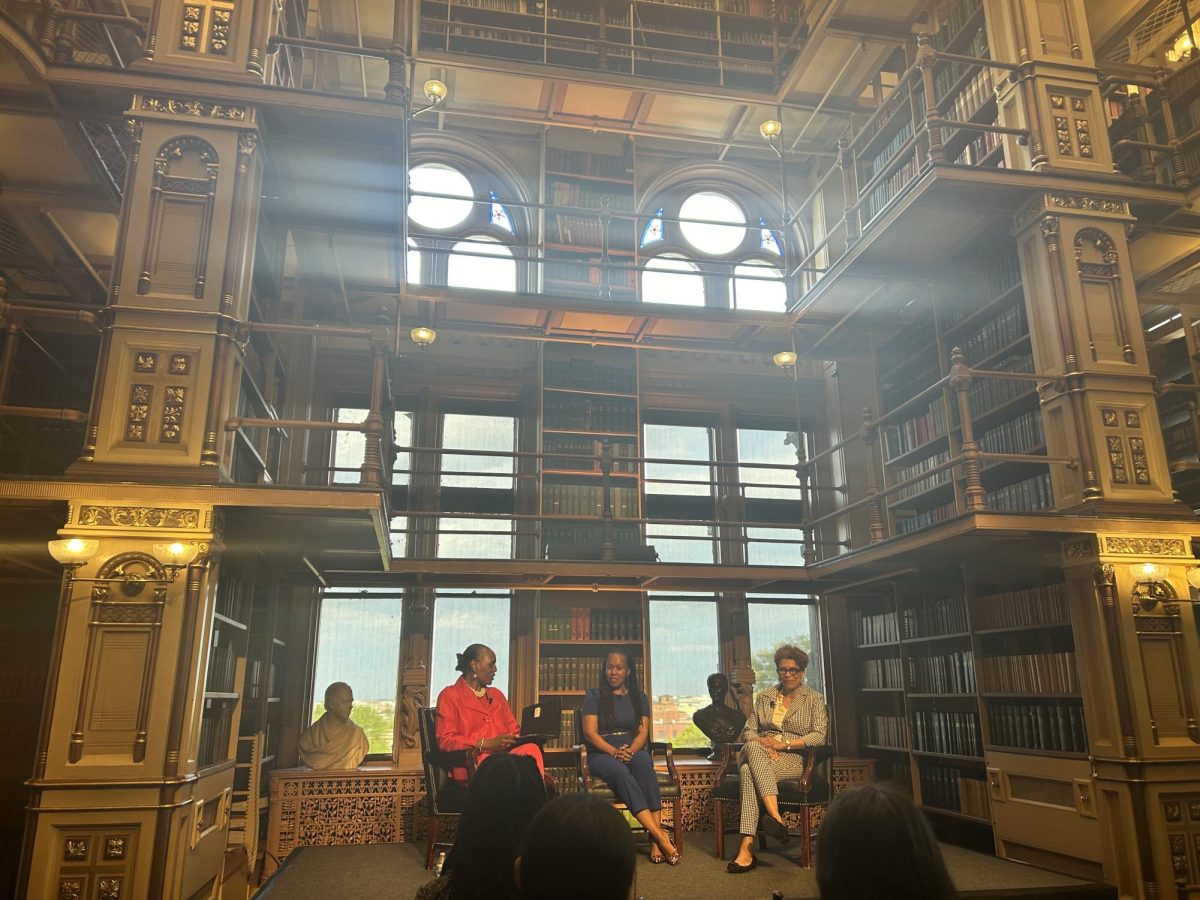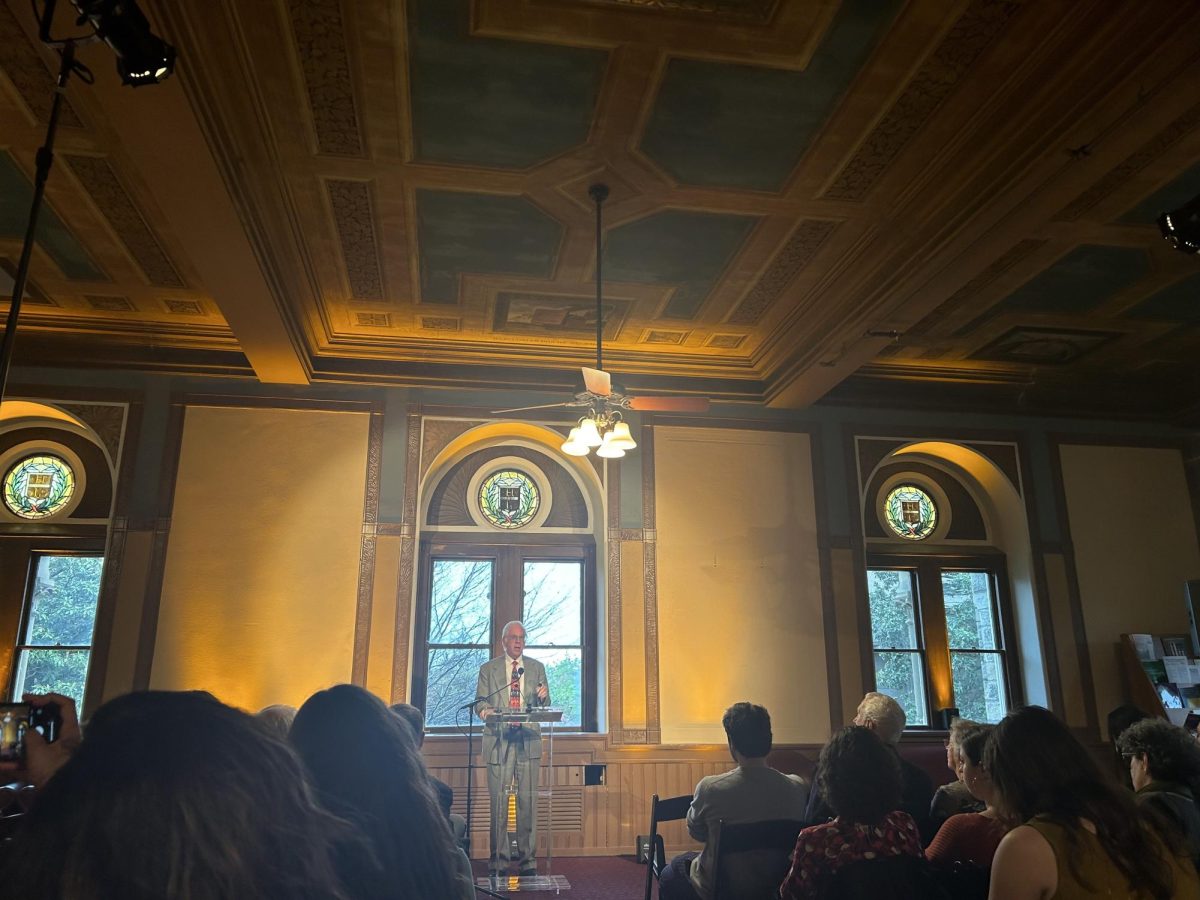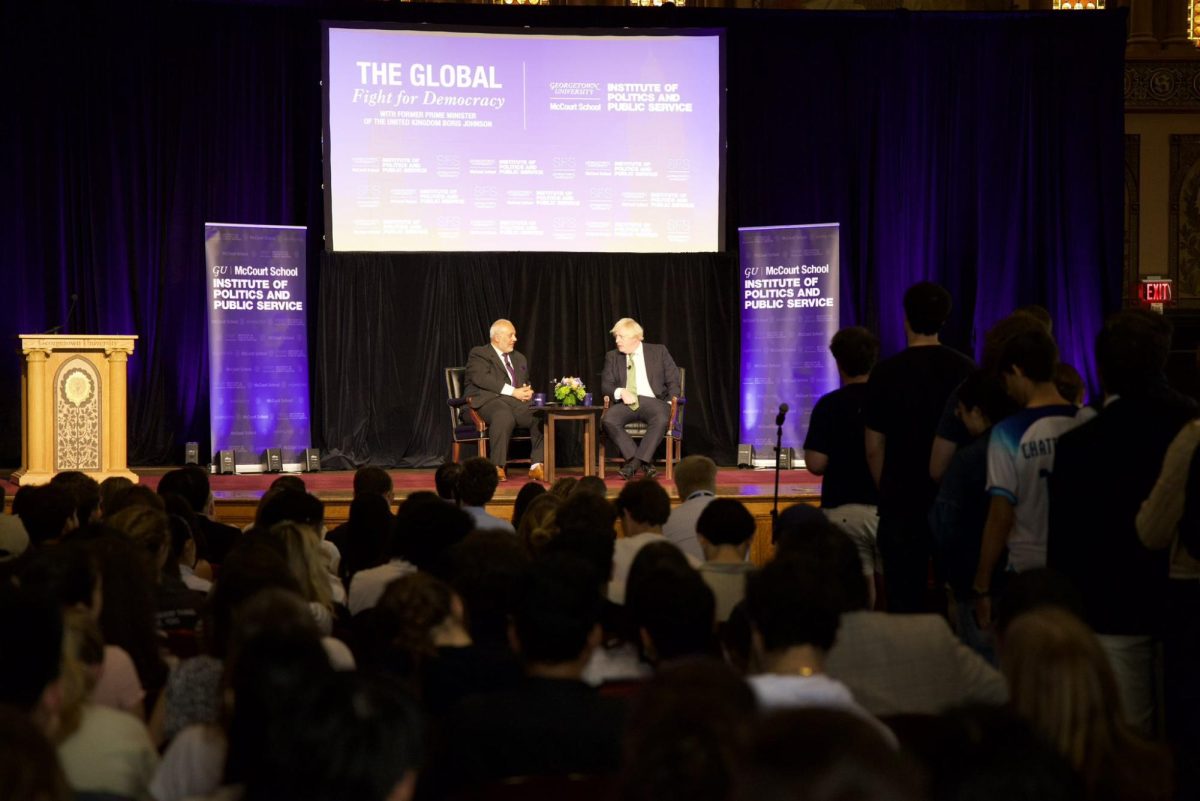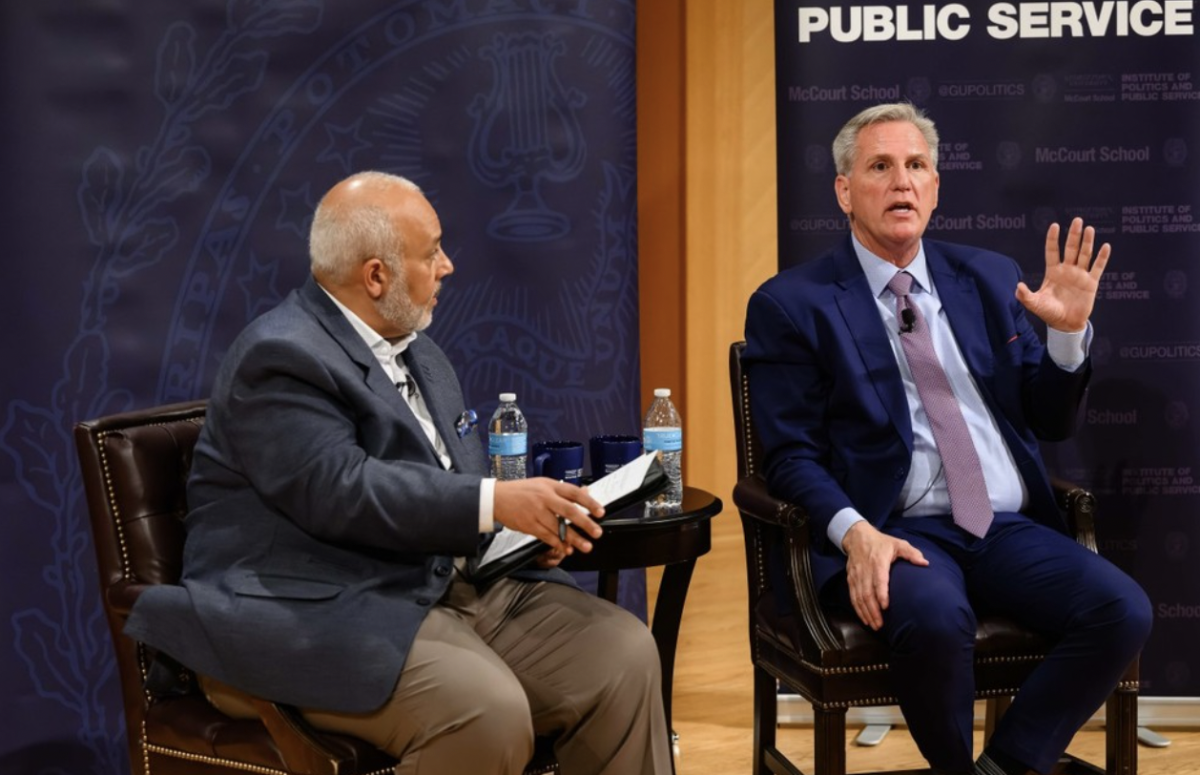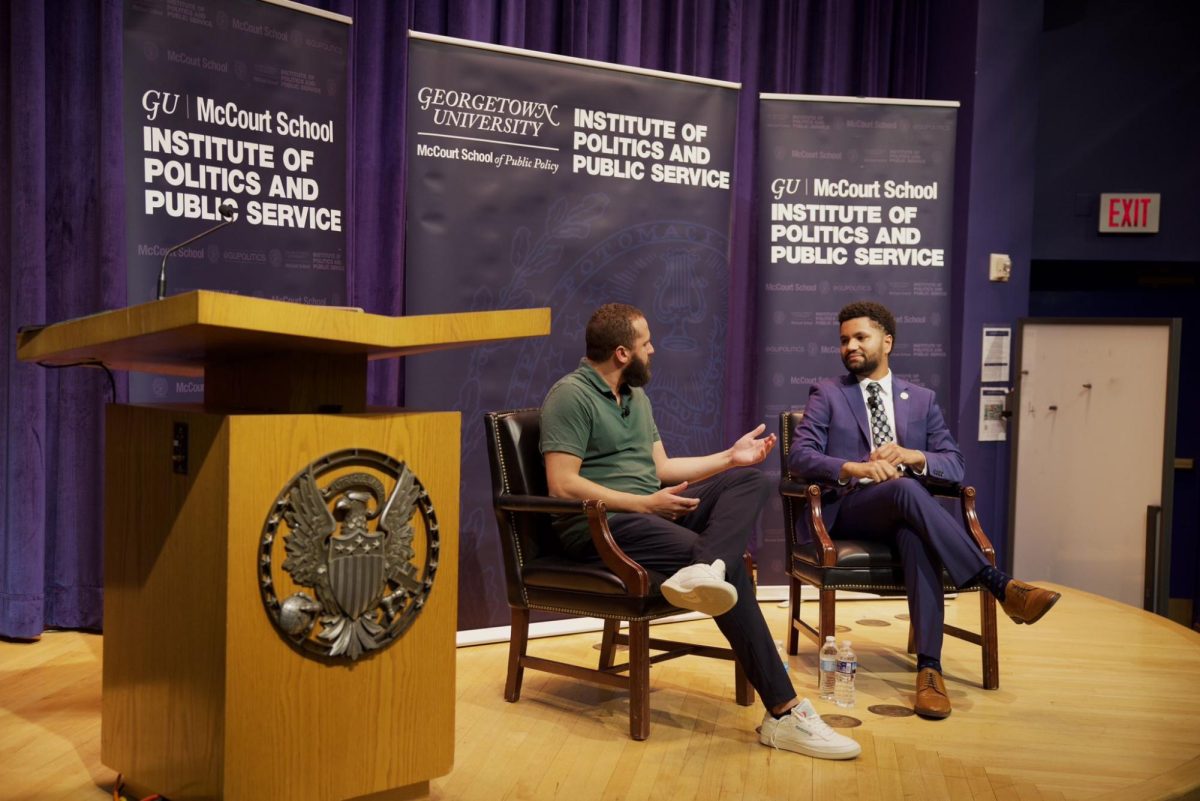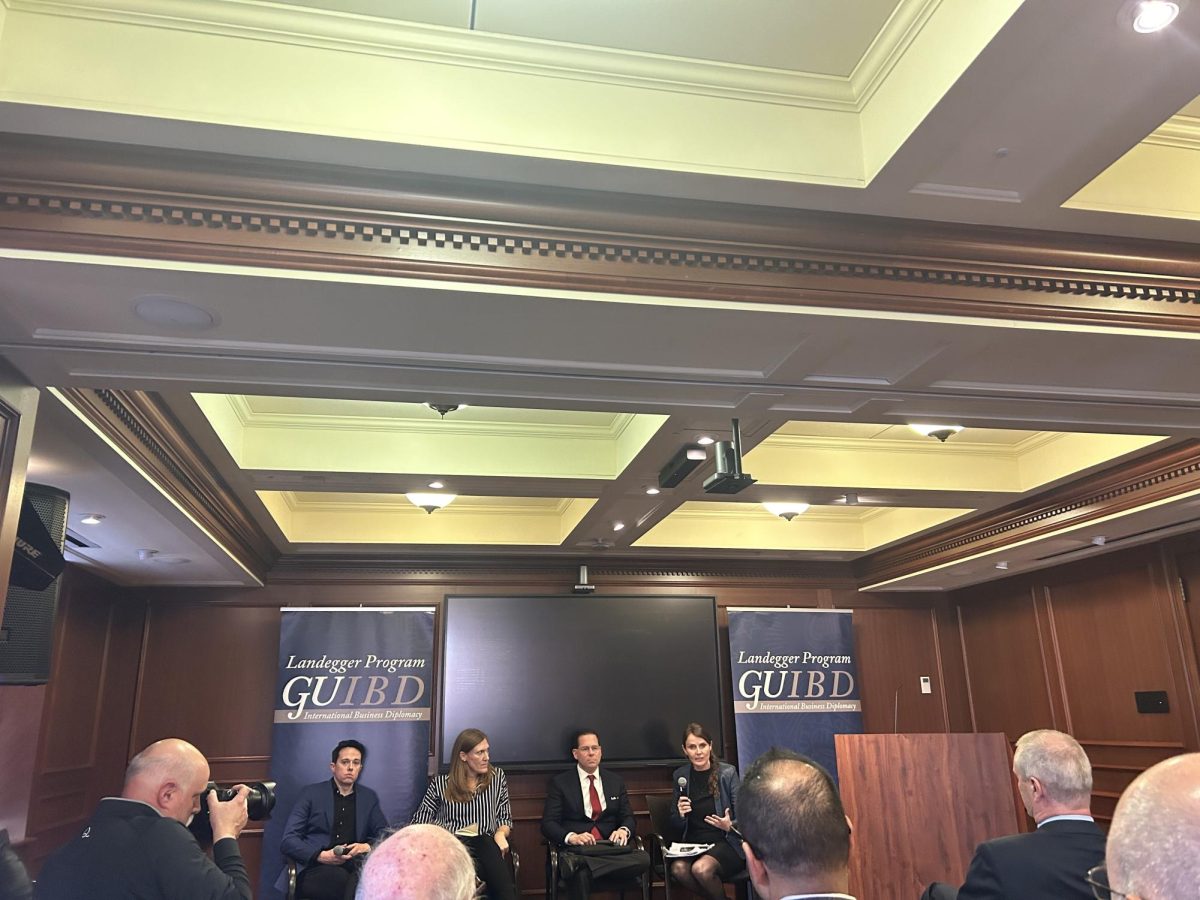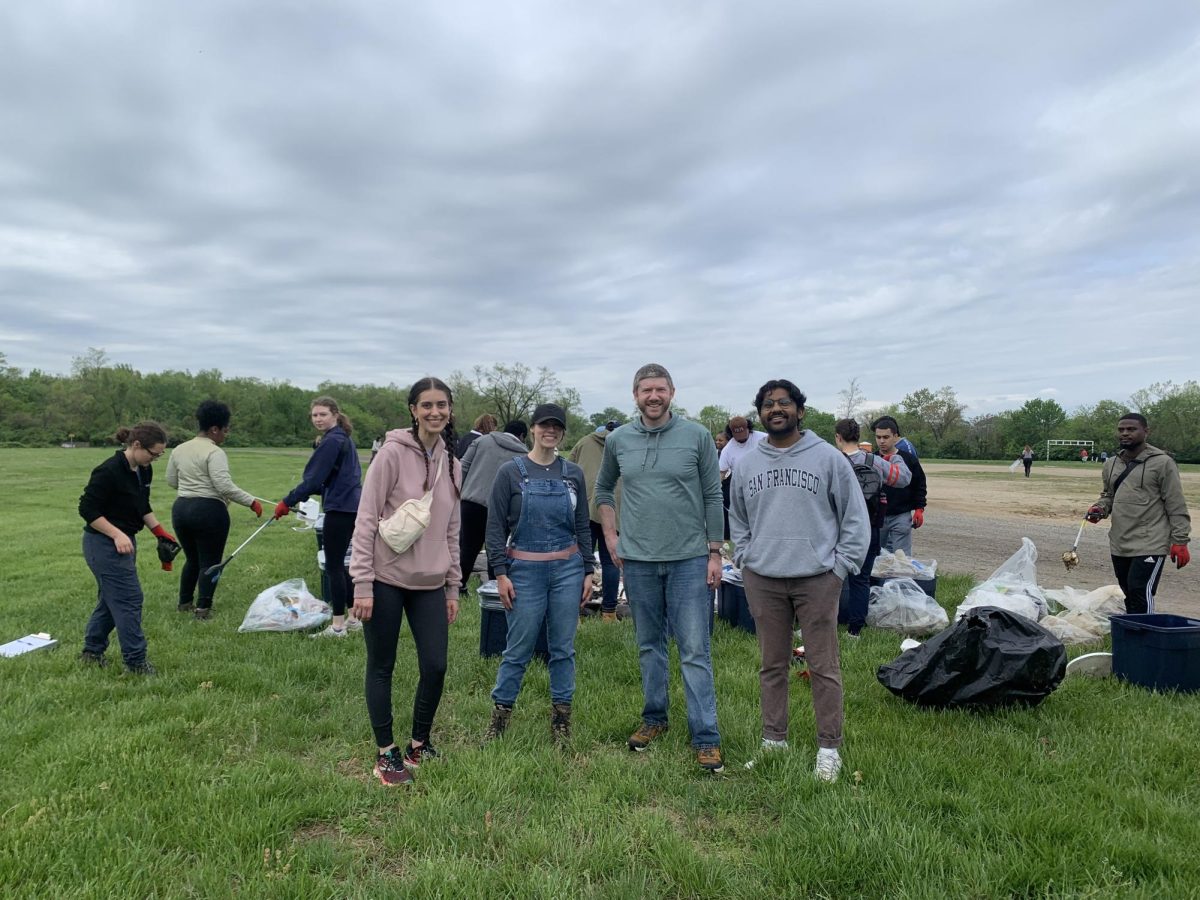A panel of scientists and university professors spoke about the results of the recent United Nations Climate Change Conference (COP27) and the future of the fight against climate change.
Georgetown’s Free Speech Project, a nonpartisan initiative tracking the status of free speech in the United States, and the Future of the Humanities Project, a collaboration between Georgetown and the University of Oxford, hosted the Jan. 25 event, titled “A Fractured Earth — Global Failures and Greenwashing in the Fight Against the Climate Crisis.” Michael Scott, a senior dean at Oxford, and Sanford Ungar, the director of the Free Speech Project, moderated the event, which centered on the intersection of humanities and public life in world issues like climate change.
The COP27 summit took place in Egypt in November 2022, bringing together nearly 200 nations to discuss issues including fossil fuel flow, climate justice funding and floods.
Senior climate scientist Astrid Caldas who works at the Union of Concerned Scientists, a nonprofit organization committed to fighting for a safer and healthier world, said COP27 has created many positive changes including the Loss and Damage agreement, which gives vulnerable countries funding to tackle climate crises.
“Many perceived that was the issue for COP27 because the Global South and climate activists have been really fighting for it,” Caldas said at the event. “The establishment of a fund for loss and damage for vulnerable countries is a big development.”
Constance McDermott, a senior research fellow at Oxford, said there have also been disappointing outcomes to certain commitments, including the pledge COP members made last year to tackle issues of deforestation by 2030, but have not yet taken many tangible steps to honor.
“It almost feels like a pledge Olympics, because so far the progress in even slowing deforestation has been very underwhelming,” McDermott said at the event. “It makes us step back and think, ‘Maybe we need to look at these problems in somewhat of a different way.’”
Caldas said reversing environmental damage is possible through projects like the building of the Trans-Amazonian Highway, a road that cuts through Brazil and the Amazon Rainforest from East to West.
“There are certain areas that can recover, but in the southern part, where grazing and other activities take place, the biomes are changing because the forest takes so long to develop,” Caldas said.
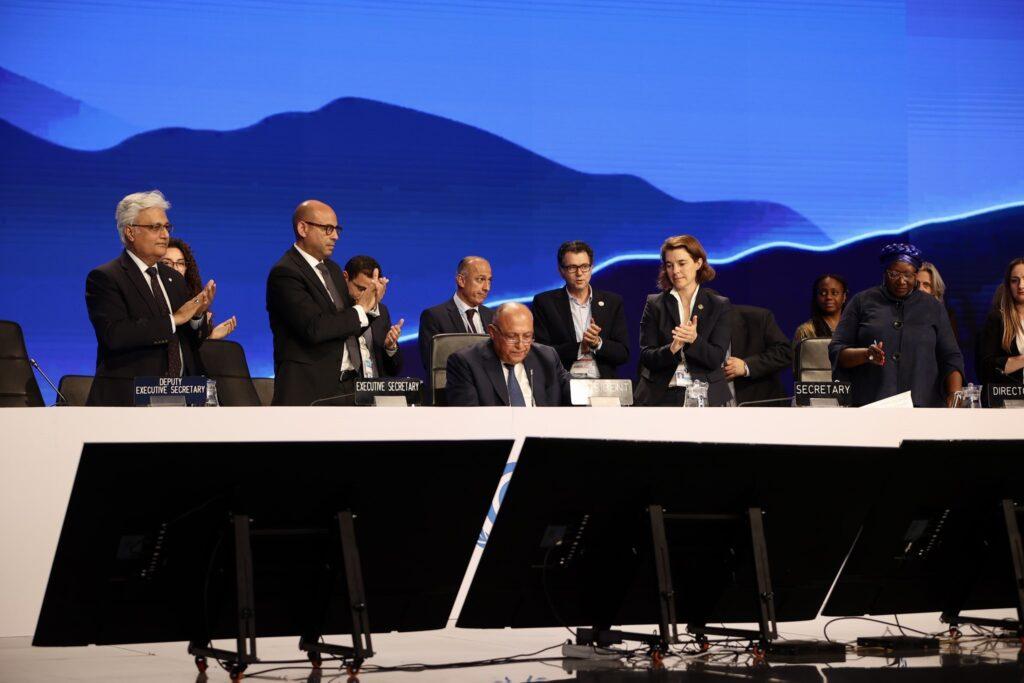
Richard Staley, professor at the University of Cambridge, said countries in Middle Europe have been more successful at communicating climate change than Great Britain, for example.
It is important to monitor countries that have declared a climate emergency, according to Charlie Holt who serves as a legal counsel for Greenpeace International, an initiative that focuses on non-violent action to create a greener world. He said the European Union and 18 national governments have declared a climate emergency status.
However, Holt said Great Britain has yet to settle on its role in the international fight against climate change.
“We’ve seen our government go back and forth, not quite clear if they want to play the role of global leader, not quite sure whether this fits into the mold of global post-Brexit Britain,” Holt said at the event.
McDermott said national governments are not the only ones who can take meaningful action to mitigate climate change, though.
City-level efforts that address climate change can go hand in hand with initiatives on the national level, according to McDermott.
“I don’t think it should be an either/or because there’s no reason why governments shouldn’t try to talk among themselves and come to an agreement.” McDermott said.
Staley said some conservative Republican figures have opposed the fight against climate change, even as far back as the founding of the United States Environmental Protection Agency (EPA) and Rachel Carlson’s “Silent Spring,” a book covering the effect of pesticides on the environment.
“It’s been a great inspiration to look back on Rachel Carson’s “Silent Spring” and the founding of the EPA and the extraordinary changes and developments of a movement with environmentalism at its heart, but also to realize that at the same time as that was being developed and at lot was being achieved, there was a constant opposition in the U.S.,” Staley said.
McDermott said that international collaboration and shared goals will be critical in reinforcing the fight against climate change moving forward.
“Environmental problems are social problems,” McDermott said. “It’s a matter of how well states, people and governments can work together to address problems that are affecting everyone.”








